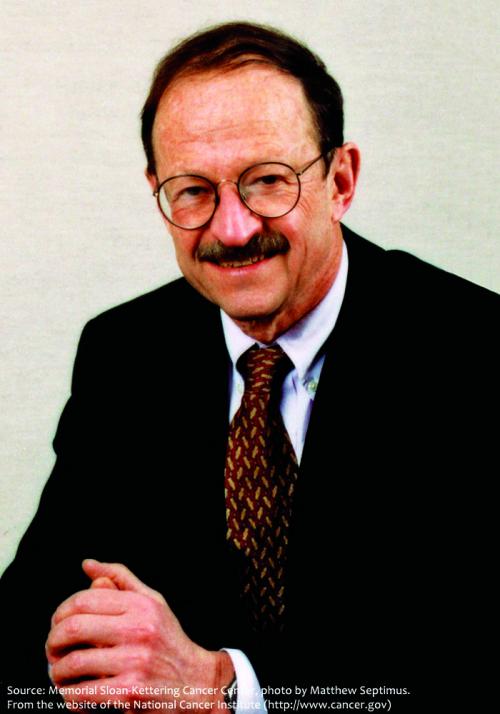Nobel Laureate Harold Varmus visits NCBS
Harold Varmus, Nobel Laureate and Director of the US National Cancer Institute (NCI), visited the National Centre for Biological Sciences (NCBS) on 21st January 2014. Varmus interacted with scientists working at NCBS and other Indian institutes to assess the status of cancer research in the country and draw out priorities in research. Based on these interactions, Varmus hopes to determine ways in which India and the United States can work towards boosting cancer research.
"The meeting with Varmus was to mainly give him a perspective of what is going on: in cancer research as well as others that can connect to cancer research in some way," says Satyajit Mayor, Director of NCBS and InStem. "Varmus was chiefly interested in exploring how to link up cancer research in India with research going on outside the country."
NCBS Professor Sudhir Krishna organized the two-hour session, bringing together Varmus and the clinicians and scientists (including theorists and cancer biologists) to interact on the various aspects of cancer research in India. Apart from NCBS's researchers, scientists from other leading cancer research institutes such as the Christian Medical College (Vellore, Tamil Nadu) and the National Centre For Cell Science (Pune, Maharashtra) also took part in the event. "Our interactions focused on potential research questions and collaborative efforts," says Thangarajan Rajkumar, Head of the Department of Molecular Oncology at the Cancer Institute Foundation, Chennai. Rajkumar had numerous questions pertaining to the intricacies of conducting tissue biopsies to identify tumours. In future, he hopes that the NCI, NCBS and other Indian institutes will collaborate to "develop simple functional assays to assess the significance of SNPs". Single nucleotide polymorphisms are small changes in the DNA of an organism, responsible for most of the genetic variation we see in humans. SNPs could potentially play an important role in cancer diagnosis and treatment.
Varmus also talked about the importance of translational research - where scientists and clinical practitioners interact and bring in the latest science to improve treatment and therapy. Krishna, whose research at NCBS focuses on unravelling the cellular basis of human cervical cancer, has an on-going translational research component with practicing clinicians at the St. John's Medical College and Hospital at Bangalore. This is a perfect but rare example of translational research, an emerging field in India. Though many other nations including the US witnessed this integral integration way back in the 1970s, India's rather recent awakening to translational research has its own advantages. The latest advances in cancer research make novel translational beginnings more successful: an aspect Varmus brought up repeatedly in his interactions at NCBS.
"He greatly enjoyed his many scientific discussions in India," says Preetha Rajaraman, the South Asia Program Director of the NCI's Centre for Global Health. "We are currently in the process of going through the many suggestions for collaboration, and will be prioritizing specific items for follow up after discussions at the NCI and NIH," she adds.
Rajaraman says that some of the possibilities include training workshops and mentoring or fellowship programs. They hope to foster "specific collaborations between Indian and US scientists".
The initiation of such ventures comes naturally to Varmus, one of the most successful administrators the National Institutes of Health (NIH) is credited to have seen. He is acclaimed for his efforts in nearly doubling the budget of the institute during his tenure in the 1990s. His research has been even more stellar: with J. Michael Bishop, Varmus discovered the genetic role of a group of viruses called retroviruses, and role they played in causing cancers. Unlike other viruses, retroviruses convert their RNA to DNA inside a host cell. In the process, they introduce their genomes (and often cancer-causing genes too) into the host, causing mutations. Varmus and Bishop showed that it is these mutations in normal genes that cause cancer. This work won them the Nobel Prize for Physiology or Medicine in 1989. Taking up administerial responsibilities has not prevented Varmus, one of the co-chairs of the US President's Council of Advisors on Science and Technology among others, from engaging in research either. His laboratory at the NCI focuses on understanding the molecular mechanisms that drive the formation of cancer cells. His team works towards understanding the processes involved in tumour progression, human lung cancer and ways in which their research can be used to further cancer treatment and therapy.
Engagements arising from potential collaborations with such an eminent scientist and institutes like the NIH-NCI could easily be a shot in the arm for cancer research in India.

Comments
Post new comment